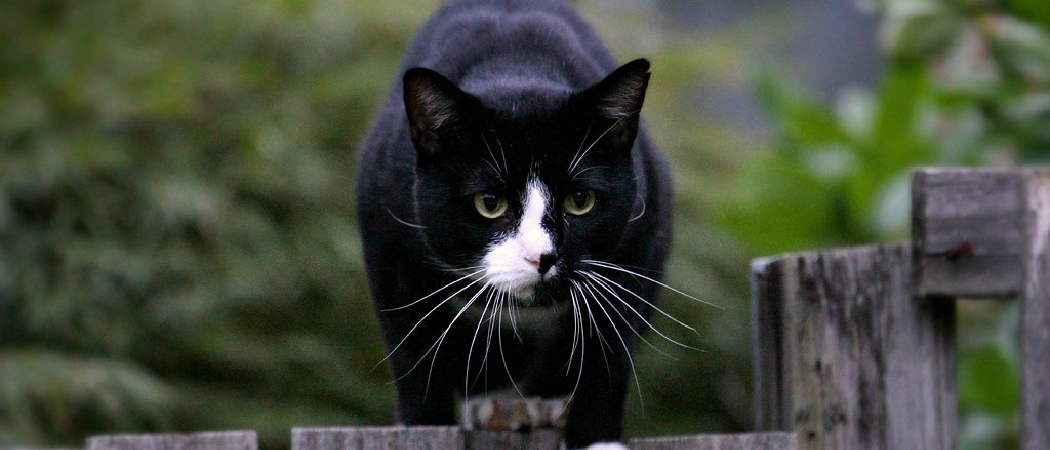Your cat may have no whiskers due to natural shedding, accidental trimming, or a medical condition. Whiskers serve as sensory tools for cats, aiding in navigation and communication.

However, if your feline friend is missing its whiskers, it is important to identify the underlying cause and provide appropriate care. Whiskers can fall out naturally and grow back, but if they are consistently absent, it may be necessary to consult a veterinarian.
Understanding Whiskers
Whiskers are one of the most defining features of our beloved feline friends. These specialized hairs, also known as vibrissae, are not just there for show – they serve an important purpose in a cat’s life. In this blog post, we will delve into the world of whiskers, exploring what they are and why cats have them.
What Are Whiskers?
Whiskers are more than just long hairs that sprout from a cat’s face. They are incredibly sensitive tactile organs that are found not only on a cat’s cheeks but also above their eyes and on the back of their front legs.
Unlike regular hairs, whiskers have a thicker and stiffer structure, making them more robust. They are deeply rooted in nerve-rich follicles, which amplify their sensitivity. Each whisker is connected to a bundle of nerves, allowing cats to perceive subtle changes in their surroundings.
| Characteristics of Whiskers | Description |
|---|---|
| Length | Whiskers are usually about two to three times the width of a cat’s body. |
| Texture | Whiskers are thicker and stiffer than regular hairs, providing enhanced sensitivity. |
| Arrangement | Whiskers are arranged in precise patterns, offering a wider sensory range. |
The Purpose Of Whiskers
Now that we’ve grasped what whiskers are, let’s explore why cats have them. Whiskers act as indispensable tools for our feline companions, helping them navigate their world with unparalleled precision.
- Depth Perception: Whiskers extend beyond a cat’s body, acting as built-in measuring tools. When exploring confined spaces, such as narrow gaps or tunnels, cats rely on their whiskers to gauge if they can fit through safely.
- Balance and Coordination: Whiskers provide crucial information about a cat’s body position and movements. By monitoring the direction and angle of their whiskers, cats can deftly maneuver and maintain balance, even in low-light environments.
- Environmental Awareness: Whiskers are exceptional sensors for detecting air currents and vibrations in the environment. This helps cats sense prey, potential threats, and even changes in atmospheric conditions.
- Emotional Expression: Whiskers can also act as a barometer of a cat’s mood. When a cat is content and relaxed, their whiskers tend to rest in a neutral position. However, when a cat is agitated or frightened, their whiskers may become flattened against their face.
Next time you find yourself marveling at your cat’s whiskers, remember the essential role they play in their daily lives. These incredible sensory organs provide our feline companions with a whole new level of awareness and enable them to navigate their surroundings with grace and precision.

Credit: www.goodreads.com
Possible Reasons For Missing Whiskers
Whiskers, also known as vibrissae, are the long, thick https://petsical.com/why-does-my-cats-hair-look-spiky/ hairs that cats have on their faces. They play a crucial role in a cat’s sensory perception, helping them navigate the world around them and detect changes in their environment. However, you may have noticed that your cat is missing some or all of its whiskers. In this blog post, we will explore the possible reasons for missing whiskers, including accidental damage or loss, medical conditions, and breed-specific characteristics.
Accidental Damage Or Loss
Accidental damage or loss of whiskers can occur due to various reasons. Cats are naturally curious creatures, and their whiskers can become entangled or broken while exploring their surroundings. They may accidentally get their whiskers caught in small spaces, such as narrow openings or fences, leading to breakage or loss.
Additionally, rough play or fights with other animals can result in damaged or missing whiskers. If your cat has recently been involved in a scuffle, it is possible that some whiskers may have been damaged or broken off in the process.
Moreover, grooming habits can also contribute to accidental whisker damage or loss. Cats groom themselves meticulously, and while doing so, they may inadvertently trim their own whiskers. This is particularly common in cats with longer whiskers or those that excessively groom certain areas of their face.
Medical Conditions
Missing whiskers can sometimes be a sign of an underlying medical condition. Skin infections, allergies, or dermatitis can cause hair loss, including whiskers. In such cases, it is essential to seek veterinary attention to diagnose and treat the underlying issue.
In some rare cases, certain hormonal imbalances or autoimmune disorders can also lead to the loss of whiskers. These conditions affect the hair follicles, causing the whiskers to fall out. Your veterinarian will be able to conduct the necessary tests and examinations to determine if a medical condition is causing the missing whiskers.
Breed-specific Characteristics
While whiskers are a common feature in most cat breeds, some breeds may naturally have shorter or sparser whiskers. Certain cat breeds, such as the Sphynx or Cornish Rex, are known for having shorter whiskers due to their unique genetic characteristics. If your cat belongs to one of these breeds, their shorter or sparser whiskers may not be a cause for concern.
Breed-specific characteristics can also manifest as curly or kinked whiskers, which may appear shorter or incomplete. These variations in whisker length are generally harmless and should not be a cause for worry.
It is important to note that if your cat’s whiskers are missing or damaged, it may temporarily affect their ability to navigate and assess their surroundings. However, whiskers typically grow back naturally over time, allowing your feline friend to regain their sensory abilities.
If you are concerned about your cat’s missing whiskers or suspect an underlying medical condition, it is always best to consult with your veterinarian for a proper diagnosis and guidance on appropriate treatment.
Dealing With Missing Whiskers
If you’ve noticed that your cat has no whiskers, you may be wondering what could be causing this phenomenon. Whiskers, also known as vibrissae, are an essential tool for cats, aiding them in navigation and communication. While it is not common for cats to lose their whiskers, it can happen for various reasons. In this article, we will delve into why cats may have no whiskers and explore some strategies to deal with this issue effectively.
Providing A Safe Environment
One of the primary reasons why cats may lose their whiskers is due to accidents or injury. As whiskers are very delicate and sensitive, they can be easily damaged if your cat gets into a scrape or gets caught in something. To prevent this, it is crucial to create a safe environment for your feline friend. Consider the following measures:
- Keep hazardous objects out of reach
- Secure loose cords or wires
- Avoid placing sharp objects in areas where your cat frequents
By providing a safe environment, you can significantly reduce the risk of your cat losing their whiskers due to accidents or injury.
Regular Veterinary Check-ups
Sometimes, the absence of whiskers may be an indication of an underlying health issue. Regular veterinary check-ups are crucial to ensure your cat’s overall well-being and to address any potential problems early on. During these check-ups, the veterinarian will thoroughly examine your cat, including their whiskers, and may conduct further tests, if necessary. This will help identify any underlying conditions that could be causing whisker loss.
Consulting A Professional Groomer
If you notice that your cat’s whiskers are gradually disappearing, it is advisable to consult with a professional groomer. These experts have a keen knowledge of cat grooming and can provide valuable insights. They can assess your cat’s current grooming routine, recommend suitable grooming products, and offer guidance on how to care for your cat’s whiskers effectively. Additionally, they can help determine if your cat’s whisker loss is due to grooming habits or another underlying cause.
In conclusion, while it is not common for cats to have no whiskers, it’s essential to address this issue promptly. By providing a safe environment, scheduling regular veterinary check-ups, and consulting a professional groomer, you can ensure that your cat’s whiskers are healthy and intact. Remember, whiskers are not just a beautiful feature; they play a vital role in your cat’s sensory abilities and overall well-being.

Credit: www.amazon.com

Credit: morganabest.com
Frequently Asked Questions On Why Does My Cat Have No Whiskers
Why Do Some Cats Lack Whiskers?
Some cats may lack whiskers due to genetics, injury, or a medical condition. Whiskers are important for a cat’s sensory perception and balance, so cats without whiskers may face difficulties in navigating their surroundings.
Can Whiskers Grow Back If They Fall Out?
Yes, whiskers can grow back if they fall out naturally. However, it may take several weeks or even months for them to fully regrow. It’s important not to trim or pluck a cat’s whiskers, as they serve crucial functions and removing them can cause discomfort and disorientation.
Are Whiskers The Same As Normal Hair?
No, whiskers are not the same as regular fur. Whiskers, also called vibrissae, are much thicker and deeply embedded in a cat’s skin. They contain specialized nerve endings that help cats detect changes in their environment and navigate in low light conditions.
Whiskers are highly sensitive and should never be cut or trimmed.
Conclusion
The absence of whiskers in cats can be a cause for concern. It’s essential to understand that whiskers are vital sensory tools for cats, aiding in their navigation, communication, and overall well-being. If your cat is missing whiskers, consult a veterinarian to determine the underlying cause and ensure your furry friend’s health and happiness.
Remember, a cat’s whiskers are more than just a cosmetic feature; they play a crucial role in their everyday lives.


